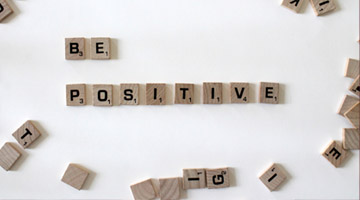
Writing and talking about disability
by Alona De Havilland and Clare Gray
December 4, 2020
Across the UK new accessibility regulations mean public sector organisations have a legal duty to make sure their websites and digital apps meet accessibility requirements. The regulations required all public sector websites to be compliant by 23 September, and created a flurry of activity.
Some see this as an added burden that stifles creativity, while others embrace the change. But underlying these rules is the need for inclusion. Accessibility benefits so many people. Currently the UK has more than 14 million disabled people, but there are many others. People who through accident or ill health also have accessibility needs, older people and those with English as a second language.
Alongside ensuring the technical aspects of websites and apps, the language we use must also be accessible. And like all language, it evolves. At Shaw Trust we champion the Social Model of Disability and we believe that the language used to talk about disability and impairment affects the way society views disabled people.
Some words and phrases give offence because they reinforce prejudice and cause discriminatory attitudes and practices among the general public. The most difficult barrier faced by disabled people can be other people’s attitudes. Terminology is important, because words reflect our attitudes and beliefs and some of the terms we tend to use may not reflect how some disabled people see themselves. The use of particular words or phrases can also conjure up a negative image of disabled people.
You can help increase public awareness by using the correct language, and approach from the perspective of the
social model of disability.
It is important to remember that not everyone will agree on everything but there is general agreement on some basic guidelines. This is by no means definitive and if in doubt one useful tip is to look at national disability websites to see the terminology used on the website about the disabled people that the website represents.
Collective terms and labels
The word ‘disabled’ is a description not a group of people. Use ‘disabled people’ not ‘the disabled’ as the collective term.
‘People with disabilities’ is inappropriate too: although disabled people have impairments, they are disabled by outside forces. The term is used in the media and in literature from overseas: but it assumes that the person has the disability; 'Disabled people' is more acceptable as it recognises the restrictions and barriers created by society.
Many deaf people whose first language is British Sign Language (BSL) consider themselves part of ‘the deaf community’ – they may describe themselves as ‘Deaf’, with a capital D, to emphasise their deaf identity.
Avoid medical labels. They say little about people as individuals and tend to reinforce stereotypes of disabled people as ‘patients’ or unwell.
Don’t automatically refer to ‘disabled people’ in all communications – many people who need disability benefits and services don’t identify with this term. Consider using ‘people with health conditions or impairments’ if it seems more appropriate.
Positive not negative
Avoid phrases like ‘suffers from’ which suggest discomfort, constant pain and a sense of hopelessness.
Wheelchair users may not view themselves as ‘confined to’ or 'bound' a wheelchair – try thinking of it as a mobility aid instead.
Everyday phrases
Most disabled people are comfortable with the words used to describe daily living. People who use wheelchairs ‘go for walks’ and people with visual impairments may be very pleased – or not – ‘to see you’. An impairment may just mean that some things are done in a different way.
Common phrases that may associate impairments with negative things should be avoided, for example ‘deaf to our pleas’ or ‘blind drunk’.
Words to use and avoid
| Avoid |
|
Use |
| (the) handicapped, (the) disabled |
|
disabled (people) |
| |
|
|
| afflicted by, suffers from, victim of |
|
has [name of condition or impairment] |
| |
|
|
| confined to a wheelchair, wheelchair-bound |
|
wheelchair user |
| |
|
|
| mentally handicapped, mentally defective, retarded, subnormal |
|
has a learning disability (singular) has learning disabilities (plural) |
| |
|
|
| cripple, invalid |
|
disabled person |
| |
|
|
| spastic |
|
person with cerebral palsy |
| |
|
|
| able-bodied |
|
non-disabled |
| |
|
|
| mental patient, insane, mad |
|
person with a mental health condition |
| |
|
|
| deaf and dumb; deaf mute |
|
deaf, user of British Sign Language (BSL), person with a hearing impairment |
| |
|
|
| the blind |
|
people with visual impairments; people who are blind; blind and partially sighted people |
| |
|
|
| n epileptic, diabetic, depressive, and so on |
|
a person with epilepsy, diabetes, depression or someone who has epilepsy, diabetes, depression |
| |
|
|
| dwarf; midget |
|
someone with restricted growth or short stature |
| |
|
|
| fits, spells, attacks |
|
seizures |
Alona De Havilland is a member of the CIPR Not-for-Profit Committee and Head of Marketing and Communications at Shaw Trust. Clare Gray is Organisational Lead for Disability Advocacy at Shaw Trust.